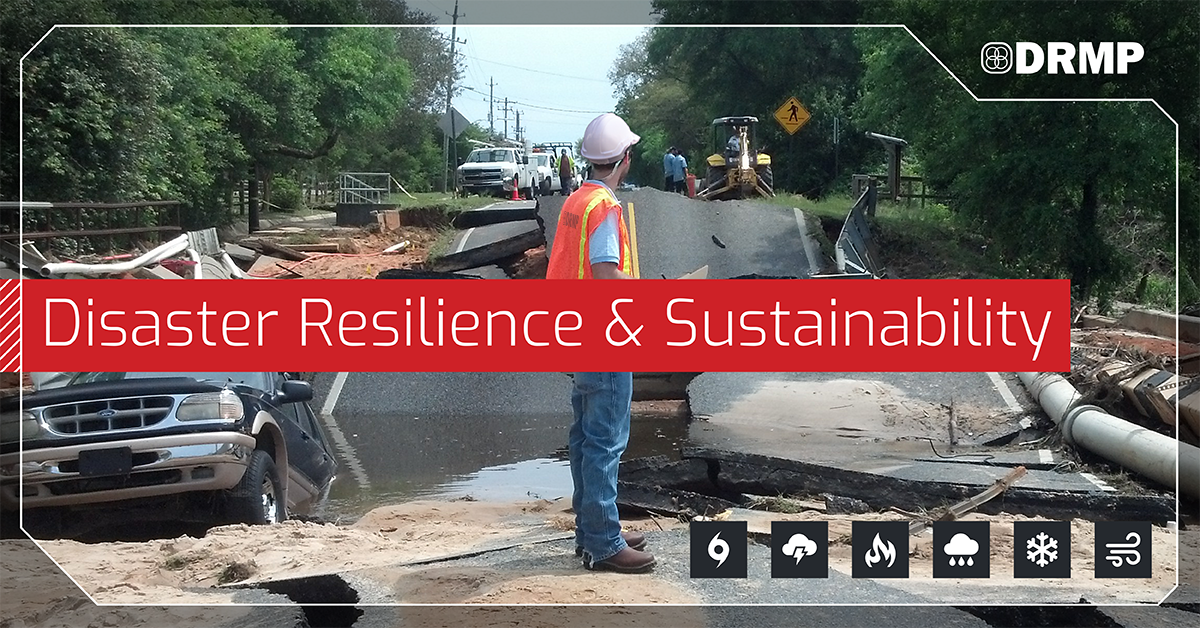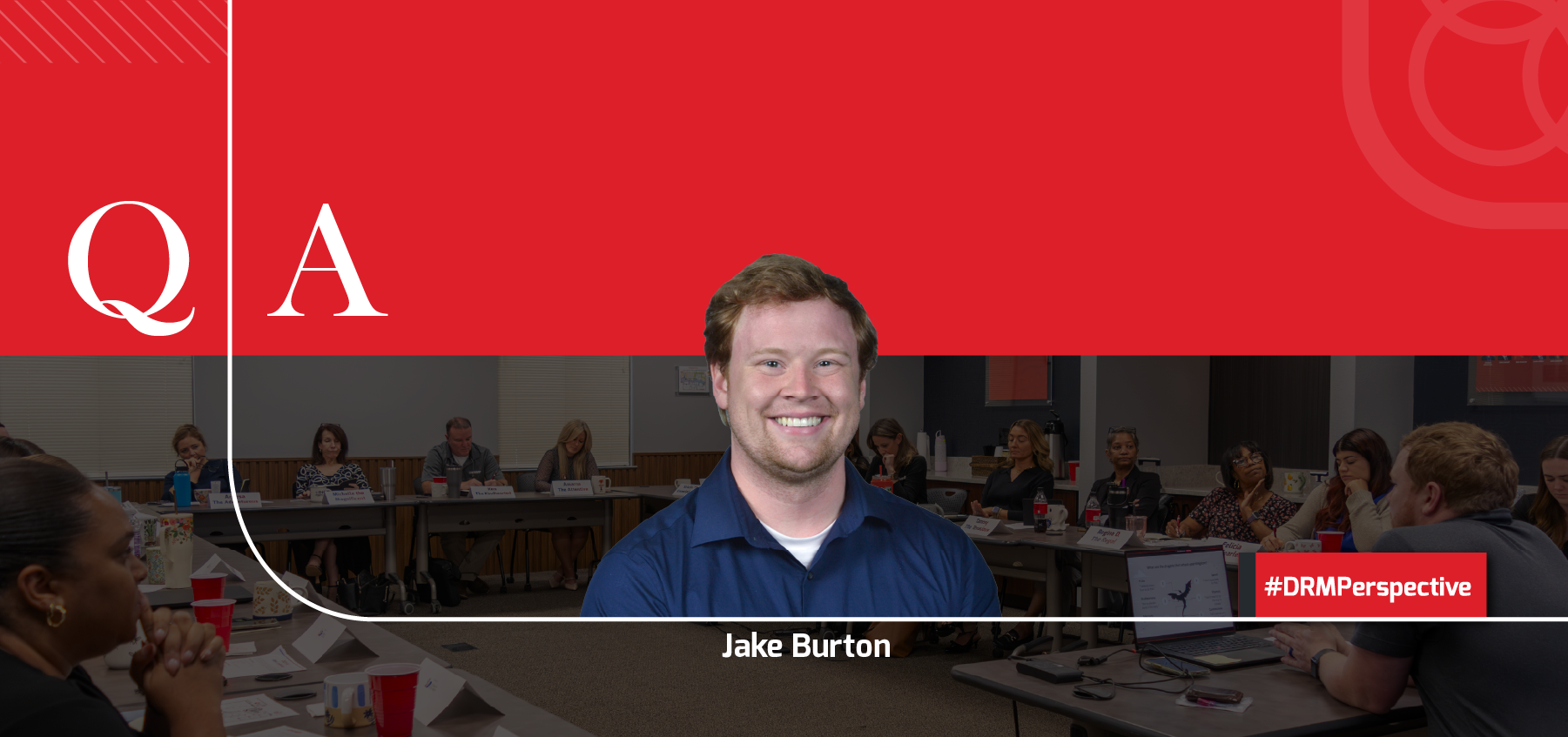Hurricane Helene's devastating impact on the Southeastern United States as a powerful Category 4 storm highlights the vital importance of disaster resilience, emphasizing the critical role of DRMP's disaster resilience services for our clients.
In the wake of such devastation, FEMA's Public Assistance (PA) program will play a significant role in helping communities rebuild. A major change to the program on August 3, 2022, increased the threshold for Small Projects to $1 million, up from $139,800, making 99 percent of PA projects eligible for simplified procedures. This means faster FEMA funding with far less documentation required.
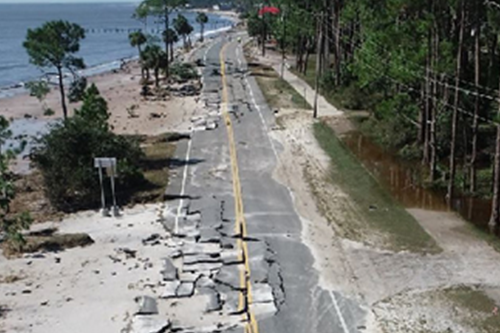
However, the new guidelines come with new responsibilities for applicants who are eligible to receive funding from the program. DRMP offers the technical expertise to help clients establish a strong foundation for FEMA’s Public Assistance program, providing accurate scope and cost estimates, included consensus-based codes, adding hazard mitigation proposals, and ensuring environmental and historical compliance is met. Our approach speeds up project delivery by eliminating redundant tasks between planning and securing funding, ensuring we maximize available resources. At the same time, we enhance the resilience of vital infrastructure to withstand disasters like Hurricane Helene.
Benefits of the Increased Threshold
- Reduced Documentation Requirements: One of the primary advantages of the new threshold is the decreased burden of documentation needed for grant close-out. The simplified procedures reduce the amount of paperwork, allowing for a more straightforward process.
- Expedited Federal Obligation of Funds: With less documentation, FEMA can quickly allocate funds, accelerating the recovery and repair process for affected areas when projects have accurate scope and cost estimates.
- Flexible Use of Funds: The increased threshold also allows for more flexible use of funds, which can help cover unexpected project over-runs without the need for extensive additional approvals.
Applicant Adjustments
Despite these benefits, applicants must make several adjustments to align with the new procedures:
- Emphasized Scope & Cost Accuracy: The shift to a $1 million threshold places significant risk on applicants, as Small Project funding is capped at the original estimate. If an applicant estimates a project to cost $750,000, but FEMA caps the funding at $500,000, the applicant faces a $250,000 shortfall. This scenario, applied across multiple projects, would negatively impact cashflow for the duration of the recovery.
- Hazard Mitigation Inclusion: Applicants must include hazard mitigation proposals from the outset. Often, these proposals are identified during the design phase. However, with the increased project complexity under the new threshold, incorporating hazard mitigation early in project scoping becomes crucial to receiving these benefits.
- Maintained Compliance Requirements: Although documentation requirements are reduced, applicants still need to comply with all federal, state, and local regulations. They must certify compliance rather than demonstrate it, but they remain subject to audits and potential de-obligation of funds. Compliance areas include environmental protection, historical preservation, procurement, and insurance.
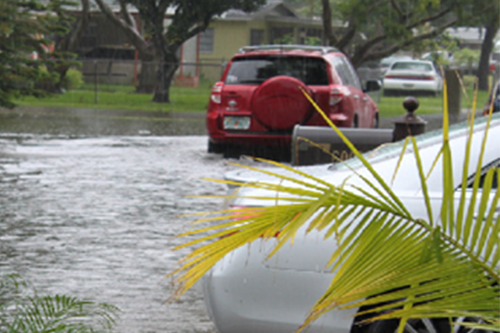
Addressing the Challenges
To understand the parameters introduced by this change, applicants should prioritize the use of qualified engineers and construction professionals for accurate project development. DRMP believes Disaster Recovery can produce higher yields with less disputes when it is approached with standardized processes and procedures and delivered by professionals with technical capacity and experience to repair and restore infrastructure.
Here are some approaches DRMP recommends to effectively manage the new requirements:
Program Support Tools and Technical Training
- Sub-Recipient Guidance and Training: DRMP recommends developing guidance documents, checklists, and fact sheets that cover FEMA PA program requirements, including damage inventory listings and consensus-based codes.
- Compliance and Schedule Risk: DRMP recommends developing federal compliance checklists and monitor adherence to avoid delays and funding issues due to non-compliance.
- Cost Estimating and Scheduling: DRMP provides cost estimating and scheduling guidelines based on industry best practices and FEMA’s Cost Estimating Format.
- Procurement Strategy and Schedule: At the outset of a recovery, a tailored acquisition strategy can be developed, offering a range of procurement options based on specific project criteria. Each option should incorporate review checkpoints and procedural checklists to ensure full regulatory compliance. The project's scope and size will ultimately guide the selection of the most appropriate procurement path.
- Streamlined Project Development: Assign architects and engineers (A/E contractors) to projects right from the damage assessment stage so they stay involved throughout the design and construction phases. This will reduce duplication of effort passing project assignments between contractors.
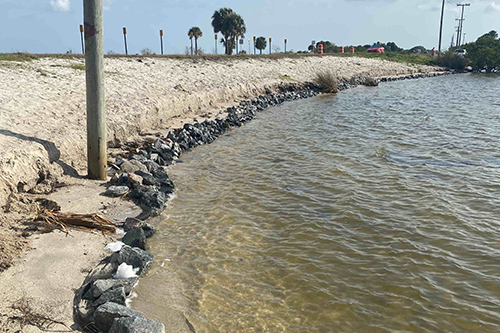
Scope and Cost Estimate Services
- Pre-Construction Services: At DRMP, we take a project-centered approach to disaster recovery. We ensure that every project starts with a clear scope of work and accurate cost estimate, regardless of FEMA involvement. Our team of experienced technical professionals works closely with applicants to lay a strong foundation for successful project outcomes.
- Small Project (Project Worksheet) Review: DRMP will review Small Project Worksheets for accuracy and consistency with applicant standards. This includes detailed reviews, constructability analysis, and cost benefit analysis when requested. Errors and omissions will be returned to FEMA before obligation.
- Hazard Mitigation: DRMP will integrate FEMA's Appendix J mitigation measures, which are guidelines aimed at reducing future disaster risks, into each project's scope. This ensures that every project is built with resilience in mind. We will also prepare individual hazard mitigation proposals and conduct a benefit-cost analysis, when required, to confirm that the projects are cost-effective.
The New Approach
Our current approach to FEMA Public Assistance has focused heavily on centralized grant management, leveraging programmatic knowledge of the FEMA Public Assistance Program, and ensuring smooth financial management for grant close-out. While these remain important, the growing shift toward simplified project worksheets (PWs) means that technical support for project development will become increasingly valuable. DRMP will provide clients with the specialized expertise needed to navigate this streamlined process and ensure our clients’ projects are effectively developed and executed.
- The old approach relies on accounting and financial professionals as well as consultants familiar with FEMA policy and process; the new approach would rely on technical professionals in engineering, design, environment, resilience, construction, and cost estimating.
- The old approach led to debate on policy and process; the new approach would demand agreement based on professional standards and established procedures.
- The old approach allowed for future consideration of mitigation during design or construction; the new approach would require applying hazard mitigation proposals at project development that include future environmental considerations identified in vulnerability assessments.
- The old approach did not include deliverable based billing; the new approach would have project-based deliverables that can be billed upon completion.
We believe it’s in the applicant’s best interest to emphasize consistent project development techniques that produce accurate scopes and cost estimates for FEMA grant development. By partnering with our professional services team to manage your project from assessment through close-out—including design, construction management, and inspection—you can ensure precise project worksheets for smaller projects. This approach also streamlines project delivery by simplifying the transition from assessment to design, reducing duplication of effort and costs, and maximizing potential benefits.
Josh Norman serves as the Disaster Resilience and Sustainability Practice Leader for DRMP.



